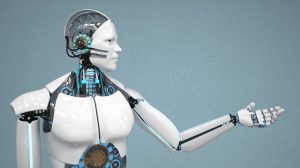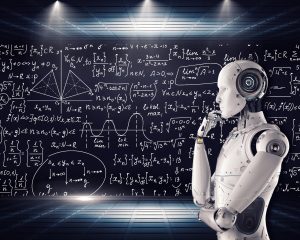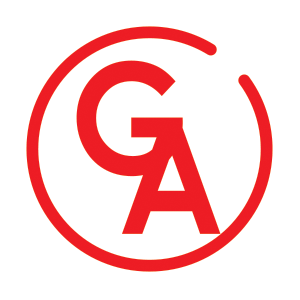
Rapidly advancing AI has helped us develop vaccines, analyze data at record-breaking speeds and improve business performance across industries. It has also stoked long-held fears of AI replacing human workers. And that’s a reasonable concern, as businesses may find that AI automation is a cheaper and more efficient alternative to human labor in some roles.
Let’s explore the potential impact of AI on certain fields, how you can AI-proof your career and even use AI to increase your value as an employee.
The potential impact of AI
In its current form, AI looks much different than how it has often been depicted in science fiction. Instead of the malevolent HAL from 2001: A Space Odyssey or the humanoid machines of I, Robot, modern AI is a type of computer programming that uses computers and machines to mimic human intelligence and behavior. It can be deployed in a variety of ways (many of which you probably already use, whether you’re aware that it was AI or not!) from the iPhone’s Siri voice assistant and email spam filters to more-advanced apps like Midjourney, ChatGPT and Stable Diffusion.
Though AI doesn’t include an evil supercomputer bent on human destruction, it may completely transform some jobs or replace them altogether. Knowing which jobs are most at risk is essential for future-proofing your career. Among the positions most vulnerable to AI replacement are:
- Customer Service – Chatbots don’t always have the best reputation. However, as AI evolves, chatbots will get smarter and more helpful in assisting customers, learning to respond in ways that are indistinguishable from a human customer service rep.
- Research and analysis – AI is able to sort, extrapolate and analyze data at inhuman speeds. Eventually, this may lead to AI doing research and data analysis without human assistance.
- Manufacturing and production – Almost every aspect of mass-scale manufacturing today includes at least some form of automation. This trend will likely continue, ultimately reducing the need for manufacturing workers.
Furthermore, AI is constantly evolving. There may be more applications of AI in the future that would put other careers at risk. Even way back in 2017, McKinsey suggested that by 2023, 14% of the global workforce may need to shift their career paths due to AI disruption. Fact is, employees need to stay ahead of the curve to thrive in a world where AI is an intrinsic part of their workplaces.

5 ways to protect your career against AI
With more businesses across the world embracing AI, here’s how to build a valuable skill set to help you confidently meet this challenge in the coming years.
1. Be flexible
First and foremost, flexibility is paramount in a working world that’s fast evolving. Flexibility could mean taking an opportunity to learn about a new position. It might be about cross-training in a different department or pursuing professional development or qualifications that would help you adapt to your industry’s future. Be open to directions your career could go—even if it looks a little different than what you initially expected.
2. Foster your “people skills”
Despite its many advancements, there are certain human abilities that AI will never replicate perfectly. Much of this includes “people skills” and emotional intelligence: how we connect with our colleagues, resolve conflicts, persuade others to hear your ideas and see things from another’s point of view. Bolstering your emotional intelligence allows you to better understand nonverbal cues, make good decisions and become a well-respected leader.
3. Build your network
If you’re concerned about AI taking over your job, it may be wise to expand your professional network. A broad network offers a multitude of benefits, from revealing opportunities and open positions to gaining new perspectives and accessing valuable information. For instance, another person in your industry might have the same concerns about AI, but perhaps they’ve found a creative way to implement it in their day-to-day job. You could be inspired by that and leverage AI for your own benefit as well.
4. Continually learn about AI
AI is here to stay. You can decide to reject it and risk being left behind. Or you could learn everything you can about it and find out how it can contribute to your organization’s objectives. Not only does this offer concrete value—it also exemplifies creativity and problem-solving skills, ultimately increasing your credibility and safeguarding your position.
In fact, a 2023 survey from Salesforce found that 97% of workers believe businesses should prioritize AI skills in their employee development strategy. Promisingly, more workers were excited about using AI in their workplace (58%) than concerned about it replacing them (42%).
5. Use AI to your benefit
Remember that AI is a manmade tool, designed to make processes faster and more efficient. If you’re on the job hunt, AI tools could prove useful in updating your resume or cover letter, or even practicing for an interview.
Alternatively, if you’re employed, there may be administrative aspects of your job that AI can automate, such as responding to repetitive questions, scheduling meetings, or analyzing your team’s capacity. This frees up time in your daily work schedule for more creativity, strategy, professional development, team building and long-term thinking.
There are several fascinating ways that AI can apply to our jobs and everyday lives—it’s just about discovering the applications that make sense for you and your career goals. Moreover, dismissing AI instead of exploring its many possibilities could ultimately hurt, more than help, your career prospects. A not-so-future workplace will likely look more like a partnership than a competition between AI and humans.
